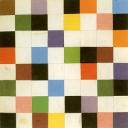Handsome Phrenology April 18, 2007
Posted by Michael McVey in Online Tools.1 comment so far
 This is funny and something I can actually write about without alerting personnel, accounting, an ethics board, or the institutional review board. I will simply deal with State Department.
This is funny and something I can actually write about without alerting personnel, accounting, an ethics board, or the institutional review board. I will simply deal with State Department.
Yesterday, I had the pleasure of speaking to a group of Indonesian English Department Chairs from all over their country. The talk was part of a weeklong visit to the United States and funded by Fulbright. They were in Amherst, Massachusetts, a few days ago. Tucson, Arizona, was their next stop. In a few days, they will go to New York City and are deliriously excited about that.
My talk was entitled “Educational Leadership: The Challenges of Technology” and they were a very attentive audience. I shifted my usually rapid patter of speech to a gentler pace like the one I used to use in Japan when I was teaching English there.
You know, it is a funny thing but every time I visit a new country I am told the native word for “bald” which is liberally used to describe my head. In Japan, I learned the word “ha-ge” from my students. When I came to Tucson, I learned “pelon” from my students. Very funny.
This group of Indonesians was very polite and kind. More so than I imagined. As I was driving home, I came across them walking single file across campus heading back to their hotel. I pulled over to wave to them. Several of them immediately came to my car in a gaggle and we chatted briefly.
To my surprise, one of them said, “You are looking very handsome today.” I was startled.
“Do you mean me?” I asked in genuine surprise. The men who were talking to me were all neatly tailored with open neck shirts and suit jackets. They all had thick dark heads of hair atop their slight frames. They were the handsome ones.
“Yes. Handsome. Very phrenology.” They all laughed as did I.
“Oh,” I smiled, “you mean my skull.” I pointed to my head and they all laughed again. I drove off to hear them chatting with each other in Javanese. I will bet one of them was explaining how the word for the study of personality and skull shape came into their conversation with their new friend on the other side of the world.
Flop of L’Enfant April 8, 2007
Posted by Michael McVey in Lifelong Learning.1 comment so far
 There was an intriguing article in the Washington Post entitled “Pearls Before Breakfast.” Imagine, if you will, a world reknowned violinist, Joshua Bell, playing his 1713 Stradivarius, but instead of a concert hall he is playing in the entrance to DC’s L’Enfant Plaza during morning rush hour.
There was an intriguing article in the Washington Post entitled “Pearls Before Breakfast.” Imagine, if you will, a world reknowned violinist, Joshua Bell, playing his 1713 Stradivarius, but instead of a concert hall he is playing in the entrance to DC’s L’Enfant Plaza during morning rush hour.
Over one thousand commuters pass by, some toss money into his violin case, but only a very few pause long enough to take in Bach’s Chaconne or Schubert’s Ave Maria. It is a great article and the online version has three video snippets from the experiment.
There are two theories at work in the piece. One theory is that we are ignorant oafs who wouldn’t recognize brilliance if we shuffled past it on our way to work. The other theory is that context is everything. In one part of the article, an art curator from the National Gallery speculates what would happen if he pulled, say, an Ellsworth Kelly out of its frame and hung it up near the gift shop with a price tag of $150 on it.

Ellsworth Kelly, 1951, Colors for a Large Wall
The effect, the curator speculated, would be similar to the subway concert. Few would notice, few would be impressed.
So here is the question. Do we pass by our own genius every day? Do we stifle our talents and replace our dreams with our daily lives? Are we listening to ourselves? Are we respecting our thoughts and ideas? Perhaps context really is everything. If you believed you had a spark of the divine within you, a small glowing ember, would you feed it, fan it, and make it flicker aflame in the dark?
Even better, would you teach your students as though they each cradled within them a little spark of genius? Would you be more generous with compliments? Would you be more thoughtful about your comments? Would you bring your own dreams and energy into your classroom in the hope that you would inspire, feed, and encourage something much larger than yourself?
I was once invited to treat all students in my classes with honor and respect because there was no telling which of them was more brilliant, more sensitive, more aware, more in tune than I ever would be. It was good advice then and still is.